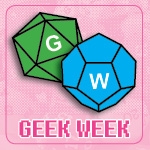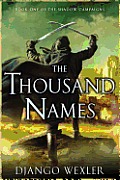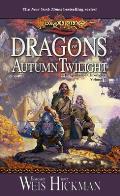

This is the story of how I became a writer, which is also the story of how I became a tabletop gamer.
It starts around when I entered high school. I'd always been a geek, but before high school my preferred outlet was reading fantasy and science fiction, with a leavening of video games. (This was in the dark ages of 1995 or thereabouts, so that meant saving up for SNES cartridges.) I was the kid who spent his time reading through the public library's entire sci-fi collection (even the series where they'd lost half the books, so I had to guess at the plot) and stayed up until dawn finishing Final Fantasy VI. But these games rarely involved other people, unless you counted sometimes having to fight my brother for the TV.
That changed in high school, when I joined a role-playing group. "Joined," in this context, is actually the wrong word; "was abducted by" is possibly a little more accurate. This group (led by my friend Luke) was extremely aggressive in its recruiting, I suspect because they had discovered that the people who would be most interested in an RPG group were exactly the sort of shy, awkward types who would never voluntarily join one. They operated a bit like a role-playing Mafia. Incoming freshmen were carefully scanned for signs of geekdom: Star Wars T-shirts, boxes of Magic cards, a Dragonlance novel sticking out of a coat pocket. Any likely prospect was cornered at lunchtime and convinced to drop by the Brick Oven Pizzeria, where Luke would make him an offer he couldn't refuse.
At this point I owned a few Dungeons and Dragons books, mostly secondhand, but I had never actually played in a game with more than two people, or with any kind of plot or character beyond flipping through the Monster Manual, deciding what looked neat, and fighting it. Luke and company played a game called Rifts instead, but more importantly they played it with actual characters and adventures beyond "hit things until gold and xp fall out." They had characters whose personalities were different from the players, like they were actually playing a role! GMs [game masters] who came up with elaborate (often completely unhinged) plots and mysteries for the players to solve! Even players whose characters were of the extreme opposite gender! My first PC was ripped off from the Warhammer 40,000 mythos (at that point, another game I had read books about but never played, although the reason was more financial than social), but nobody cared.
I was hooked, and I mean badly hooked. It's almost hard for me to imagine now how much we played back then. Our regular schedule was two sessions per week, on Friday and Saturday nights, for six or seven hours at a time, with an occasional special session on Sunday as well. (It's probably redundant to say this, but none of us got a lot of dates during this period.) We had to carefully survey the available venues and try to guess whose parents were least sick of us and wouldn't mind us taking over their living room. And for every hour I spent playing, I spent another hour on planning, character creation, carefully preparing arguments to convince the others why my half-dragon, half-werewolf True Atlantean Undead Slayer was totally legal, and elaborate exegeses of the rules. (Rifts is a game with a wonderfully weird universe and backstory but, it must be said, a bit of a rickety mishmash of rules.)
Because our play schedule was so packed, our group never used the "one GM runs a campaign" system that is pretty standard for tabletop RPGs. No single GM could possibly have kept up with our ravenous demand for adventures, especially once the group's membership went critical and we started having to put one group in the living room and another in the dining room. (The parents loved that one, let me tell you.) Instead, we took turns, and each GM would run his adventure and then pull out his own character and hand things over to the next guy. The churn was pretty fast, which meant that I was fairly quickly dropped, with no experience, into the driver's seat.
I've lost track of what my first adventure was about, but I'm sure it was ludicrous. Again, it didn't matter; again, I was hooked. I loved it — I loved creating the plots, sketching out the villains, planting elaborate mysteries for the players to figure out, designing the twists to give them exactly the right amount of hell. I started putting a lot more time into that side of the game than I ever had into playing. I started writing things down, which I thought of as an astonishing level of dedication at the time. I ended up filling notebooks with material: complicated histories of imaginary places, carefully constructed webs of relationships between rival NPCs [nonplayer characters] for the players to puzzle out, thousands of years of backstory to explain why Xanthrax the Destroyer felt as though it was his destiny to take over the known universe.
This kept me happy for a long time. Eventually, though, I started to realize that the one thing I didn't like about the gaming process was dealing with the damn players all the time! That's not literally true — I still liked role-playing, and indeed still do — but at a certain point, I found that the vast majority of the stuff I wrote out was basically a waste of time. For all that the level of play in the Rifts group was light-years ahead of my ancestral, primitive D&D sessions, the format was simply not conducive to long, complex narratives.
 For one thing, in our system, you could never guarantee that the same people who were at today's session would be at tomorrow's, since we were all subject to schoolwork, sports practice, parental whim, and other obstacles. The game just went ahead with whoever happened to be on hand, which tended to have a detrimental effect on the plot. (Imagine if, in the sequel to Dragons of Autumn Twilight, Caramon, Raistlin, and Tasslehoff had been swapped, with no explanation, with a ninja, a vampire, and a wisecracking robot with plasma missile batteries.) By the time you got to the end of the adventure, you might have a completely different group than the one you'd started with, who'd heard all your careful backstory in abbreviated secondhand. This meant the players usually didn't care about Xanthrax the Destroyer's unhappy childhood and his personal tragedy and loss of faith; they were happy enough to just blast him into vapor and move on.
For one thing, in our system, you could never guarantee that the same people who were at today's session would be at tomorrow's, since we were all subject to schoolwork, sports practice, parental whim, and other obstacles. The game just went ahead with whoever happened to be on hand, which tended to have a detrimental effect on the plot. (Imagine if, in the sequel to Dragons of Autumn Twilight, Caramon, Raistlin, and Tasslehoff had been swapped, with no explanation, with a ninja, a vampire, and a wisecracking robot with plasma missile batteries.) By the time you got to the end of the adventure, you might have a completely different group than the one you'd started with, who'd heard all your careful backstory in abbreviated secondhand. This meant the players usually didn't care about Xanthrax the Destroyer's unhappy childhood and his personal tragedy and loss of faith; they were happy enough to just blast him into vapor and move on.
In short, I wanted control. I wanted to tell epic, thoughtfully plotted stories, where the characters would live and die and fall in love in all the right places (and wouldn't casually gun down a harmless NPC on whom the entire plot hinged). Here, once again, Luke intervened. He told me he was starting a creative writing group (I think it was college-applications time) and invited me to try my hand at it. At the first meeting, we got together, talked about what we liked to read, and tentatively agreed to try a workshop format. Everyone was supposed to write a story on the theme of "time," and the next week we would critique it.
The group never did meet again, as it happened, and I'm not sure if any of the other members ever wrote anything. But I wrote a story called "Einstein vs. Satan," which I thought was pretty good. After the group failed to materialize, I showed it around to a few friends and family, who seemed to think it was pretty good as well. Still, I'm not sure it would have gone anywhere if not for my dad.
"Look," he told me. "You know how when you kids do something or make something, we'll always like it because we love you?"
"Sure," I said. At 16 I was world-weary enough to grasp the concept.
"This isn't that," my Dad said. "This is really good."
We sent it to Asimov's. It came back, three months later, with a form rejection, but by then it was too late. I'd written a dozen short stories in the interim and discovered the wonders of posting work on the Internet, where people could just read it. The scope of my projects expanded — longer stories; a novella; a linked series of novellas comprising a single grand, epic tale; and eventually an honest-to-goodness novel of 100,000 words called The Reality Hackers.
In retrospect, it wasn't very good. It didn't make any difference. Again, I was hooked.
That's not the last time gaming and writing intersected for me. In fact, my new novel, The Thousand Names (out July 2) — an epic fantasy tale of muskets and magic following a desperate army's campaign for survival in a hostile land — owes its existence to tabletop wargames and the friends I made playing them, who inspired an interest in history that changed the way I thought about writing yet again. But that is, as they say, another story.